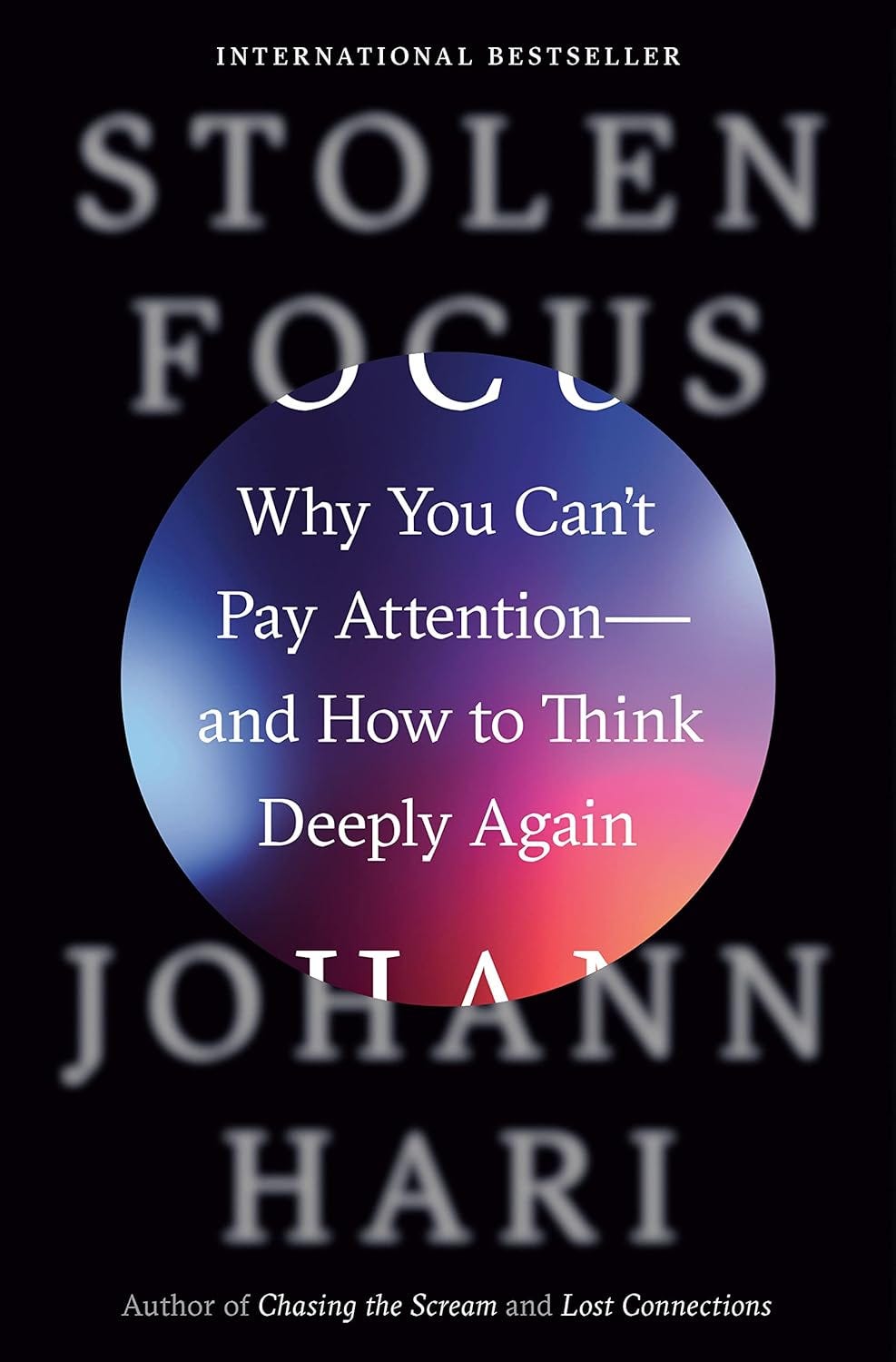How Fiction Can Fix Hatred
Since Hamas' attack against Israel, the world desperately needs empathy. Maybe fiction can be the answer.
I was reading Amos Oz’s A Tale of Love and Darkness when I stumbled upon this thought-provoking sentiment: "Facts have a tendency to obscure the truth." Maya Angelou may have said it first when she said, “I deal very little in facts; facts can obscure the truth. You can tell so many facts you never get to the truth.” But reading it in Oz’s book made me stop and think.
In a world saturated with information, where do we find clarity? How far are we willing to look from our own “truth” to discover the “facts,” and how much of the “facts” that we see and read serve simply as an echo chamber to reinforce our preconceived views?
This topic actually makes me super uncomfortable. I’m one of those people, I’ll admit, who presses the “Not Interested” button on Instagram and TikTok when I come across something that I don’t agree with. It irks me to see posts and videos that are so clearly wrong. Debating with internet personalities rarely ends well, so I would prefer to just look away and not be bothered by people who clearly have no idea what they’re talking about.
Social media makes it easier to insulate ourselves into our “safe rooms” where no ideas or facts can obscure our personal view of the truth. Don’t agree with someone on Substack? Unsubscribe. Don’t like a post on Instagram? Unfollow. This person on TikTok is an idiot? Not Interested. It’s so easy to curate our feeds and eliminate ideas and viewpoints that make us uneasy, uncomfortable, or even angry. We’re like our own little keyboard KGBs, censoring dissenting opinions, and removing them from view.
Johann Hari talks about this in his book Stolen Focus. Of the way social networks are designed to keep you scrolling and clicking:
The algorithm they actually use varies all the time, but it has one key driving principle that is consistent. It shows you things that will keep you looking at your screen.
This manipulation of what we see online puts us in a constant feedback loop where we get very accustomed to reading opinions that confirm our view of the world.
But in the month since the horrific massacre of Israeli citizens by Hamas terrorists (redundant?) on October 7, it’s been harder to keep insulated from views that contradict my own. What are these views? Just ones like this:
And this
:
And this:
“Why do algorithms automate hate and antisemitism?” asks a USA Today article titled “From Nazi Propaganda to Holocaust Denial, Social Media is Pushing Hate on Users.” The reason is simple:
“Algorithmic antisemitism” is driven by engagement metrics such as views, likes, shares, and comments. Because extreme content, such as hatred in general, tends to capture the attention of users due to the evolved human proclivity to identify threats, such content racks up a lot of engagement.
So every comment of
on a “Free Palestine” post, and every comment of
on an “Am Yisrael Chai” post, tells the algorithm that you’re interested in that type of content and want to see more of it.
Sadly, the exposure to opposing viewpoints does not seem to be opening most of us up to differing points of view. If anything, “social media tribalism” is causing the gulf to widen ever deeper, cheered on by hundreds of online commenters.
So what’s the solution? Do we keep algorithms as they are and have them push our preferred content at us, content that they hope will keep us glued to our screens? Do we change the algorithms to show equal amounts of diverging opinions, especially when it comes to something that affects the societal landscape in such an extreme way?
Maybe the key is somewhere else—not on our lack of exposure to differing viewpoints but on our increasing lack of empathy.
In Stolen Focus, Hari cites a study that measured empathy levels in college students from 1979 to 2009. The verdict? Researchers saw a sharp decline of 48% in overall scores.
Empathy is the ability to comprehend and share the feelings of others, to step out of your own shoes, and walk, even for a moment, in someone else's. It's a crucial trait for human progress, and the lack of it is what could cause someone to rejoice over the murder of innocents—on either side. In our ever more “me”-centered worlds, the ability to consider the feelings, the humanity of another, is slowly ebbing.
So how do we increase empathy? How do we step out of our bubbles and see each other for what we are: complete people with complex inner worlds? The answer Hari gives is an interesting one. Read more fiction.
Reading fiction has been shown to increase empathy in children, teenagers, and even adults. In one study, they actually studied the effect that reading literary fiction had on people’s brains, and found that there was heightened activity in brain regions linked to movement and sensations as if the participants had actually stepped into the world of the book.
When you read fiction, especially literary fiction, you immerse yourself in the lives of characters from various genders, ethnicities, cultures, political identities, professions, ages, social statuses, and even species. You get a glimpse into the challenges of losing someone, going to war, living in poverty, facing a disability, or moving to a foreign country. These diverse experiences broaden your understanding and empathy, making it easier to connect with a wider range of people in your own life.
So do facts obscure the truth? Maybe they do. But a story acts as a Trojan horse, taking the best truths, truth in its purest form, and turning into something that can bypass the strongest of biases, speaking directly to the heart.
Have a great week, and keep reading!
We continue to pray for the safety of our brothers and sisters in Israel, and the safe return of the 200-plus hostages in Gaza.
What did you read over Shabbos?
A selection of shared Shabbos reads





















Arty, you highlight something so important here, something that’s never far from my mind: IT’S ALL TOO MUCH!
We’re not meant to absorb so much content, so many opinions, or 24/7 news. It’s not good for our minds, hearts, or bodies...and when you’re bombarded with content like we are, do we stop seeing reality as is it?! I’m starting to think we do. How can we stay sane and rational when within the span of a few seconds I move from images of war to Sephora’s lasted holiday collections.
I’m trying, more than ever, to be more deliberate and thoughtful about what I consume, in all forms. Thank you 🤍🤍🤍
Very on point - shameless plug I called this “emotional rationality” in an 18forty piece from this past summer https://18forty.org/articles/a-call-to-read-more-fiction/